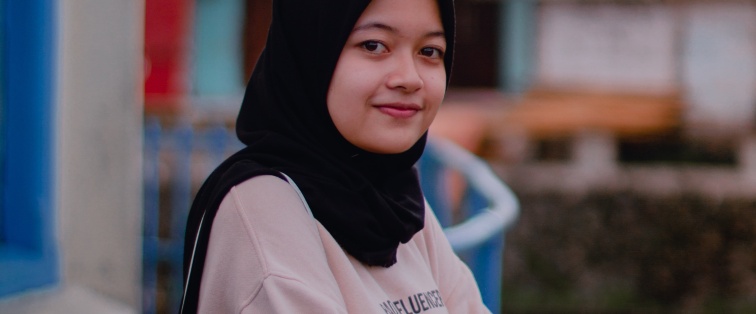Resilience Coaching: A Promising Treatment for Adolescent Chronic Musculoskeletal Pain

As a researcher and physician, having my research interests align with patient and caregiver needs and perspectives is something I highly value and prioritize. Therefore, nothing has been more satisfying than executing my pilot trial of a resilience coaching program for youth with chronic musculoskeletal pain (CMP) and gathering patient and caregiver feedback to inform how we may one day offer resilience coaching as part of routine clinical care.
We know that youth with CMP have low levels of resilience. We also know that the higher your resilience level, the better your overall functioning is despite having chronic pain. My team and I wanted to know if building resilience could improve treatment outcomes for youth with CMP—but first, we needed to prove that delivering resilience coaching to youth with CMP is not only possible but well-liked among these patients. Below, we’ll outline what we learned.
With funding from the Rheumatology Research Foundation and in collaboration with the Palliative Care and Resilience (PCAR) Research Program at Seattle Children’s Hospital, we conducted a feasibility and acceptability trial of a resilience coaching program, called Promoting Resilience in Stress Management (PRISM), among teenagers with CMP from September 2020 to April 2021.
In the program, teens work one-on-one throughout five sessions with a PRISM coach who teaches skills targeting four “resilience resources”—stress management, goal setting, cognitive reframing and benefit-finding. PRISM coaches are trained, bachelor’s degree-level, non-clinical staff rather than licensed practitioners who are already in high demand. This alleviates system burdens and delivers care that otherwise may be difficult to access. Because it is a brief, manualized intervention, PRISM can be widely disseminated with excellent fidelity. This, combined with the ability to deliver it remotely (via video visit or telephone), make it highly appealing in routine clinical care.
What did we learn about resilience coaching?
Patients newly diagnosed with CMP and one of their caregivers were given the option to participate in PRISM in-person, via video visit or via telephone. We enrolled 27 patients in the trial, most of whom were female and had an average age of 16.
Most teens preferred the video visit, followed by telephone.
Participants reported improved resilience, physical function and psychological distress from baseline to immediate post-treatment, even when their pain intensity, pain catastrophizing, and their overall health were similar before and after treatments.
Feedback was overall positive. Both patients and caregivers expressed that PRISM’s logistical aspects worked well for them. The majority of caregiver and patient participants felt that PRISM gave the patient a valuable set of tools to manage the psychological components of their pain. Participants liked that the program focused on building a positive attitude, integrated psychological and physical treatment strategies, and helped them reduce their overall stress. One participant said:
“I found it helpful…it definitely helped to remind myself and learn new skills about ways that I can help manage my stress and my pain and just overall coping with my condition. I found it extremely helpful, learning new things, and going over it with somebody, personally being able to talk about it and come up with personal examples.”
Patients and caregivers wanted to participate because patients were struggling with CMP and wanted to learn coping strategies, to help others with CMP through the program’s research findings or because they had difficulty finding psychological services outside of PRISM. Patients said that PRISM reinforced their existing belief that therapy is beneficial and their desire to continue working on their resilience in therapy, including potentially with a provider using cognitive behavioral therapy. Several mentioned that PRISM would be useful as a “gateway” to therapy for other youth who might be new to or skeptical about therapy. One participant said:
“I’ve always really [been] opened [to therapy] so I've had that relationships since I was really, really young. And I'm really glad to have people in my life who support things like that. But also [there are] people in my family that don't support things like psychologists or psychiatrists, who don't believe in stuff like that. So, I think if there was a patient who was kind of afraid of that [therapy], this is a really nice way to open their mind to psychology and stuff like that…it’s much better than going from just AMPS [Amplified Musculoskeletal Pain Syndrome] to a psychiatrist…”
Suggestions for improvement included having caregivers attend sessions to ensure they knew what the patients were learning. Further feedback included adding group sessions for the patients or another social component to share skills and build community with each other, providing printed workbooks to reinforce the session content and offering a crisis hotline.
What’s next?
Overall, we walked away from this study knowing that patients and their parents do want a program like PRISM and prefer having it held as a remote session to fit within their everyday lives. Teens told us PRISM would be a good way to engage in mental health services by making counseling approachable and PRISM coaches relatable. We are hopeful that with additional research we can also show that resilience coaching helps improve treatment outcomes alongside an already existing multidisciplinary approach.
Next, our team will conduct a randomized controlled trial of PRISM plus an added group session component, comparing it to usual care, to better understand the effects of resilience coaching on adolescent CMP.
Learn more about the PRISM intervention in this video.
